Agriculture & Environment
Mak Seeks 10 Hectares of Land to Establish Livestock Cafes in Napak District
Published
4 years agoon
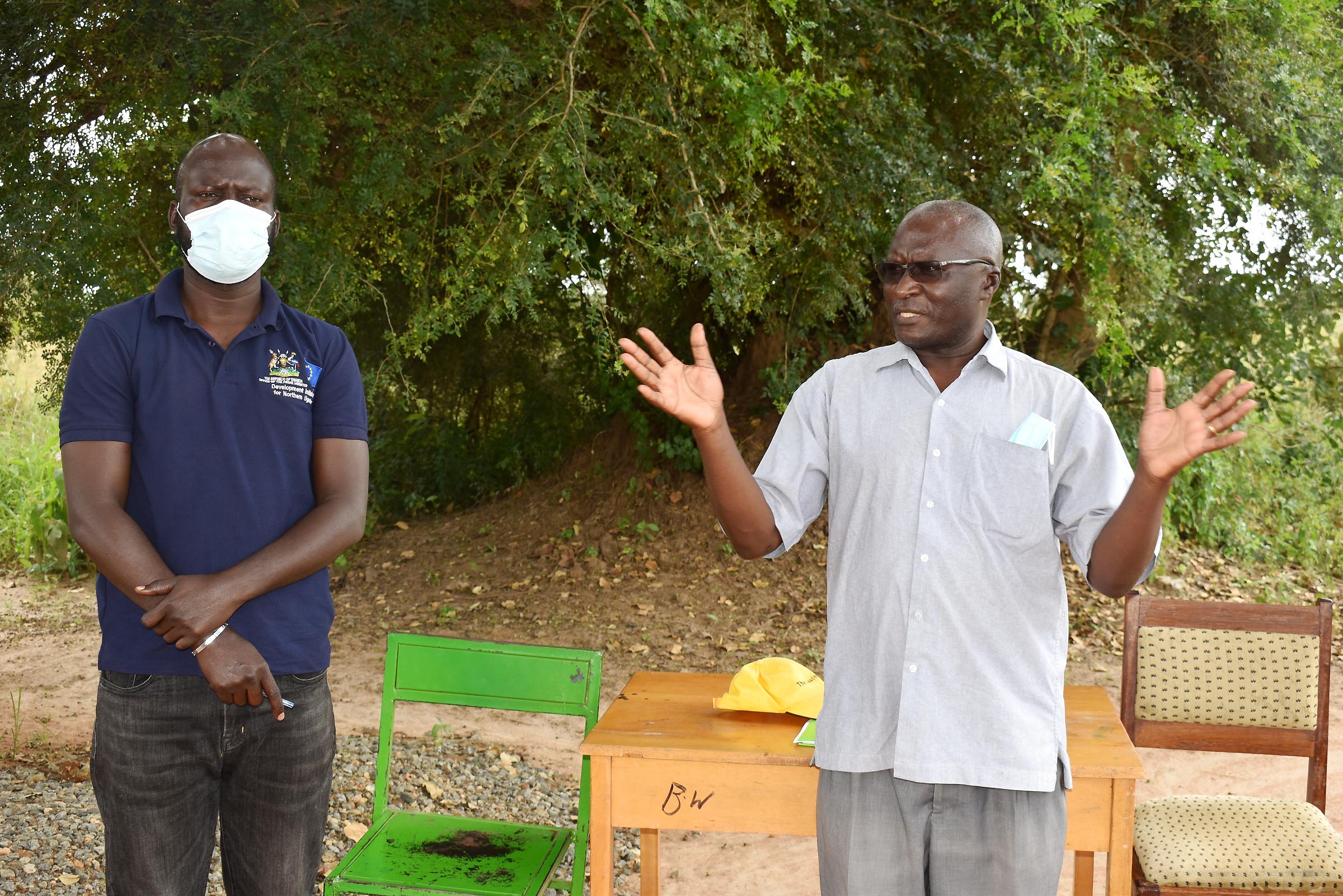
By Jane Anyango
Makerere University Researchers under the Drylands Transform Project are engaging communities and local government in Karamoja sub-region to establish livestock Cafes.
This was revealed during the inception workshop held in Napak District on 22nd October 2021. The research team met with Local Government Technical and Administrative units seeking permission and support to implement the project in the area and also offer land for demonstration sites that will be handed over to the districts after the five-year project period for sustainability.
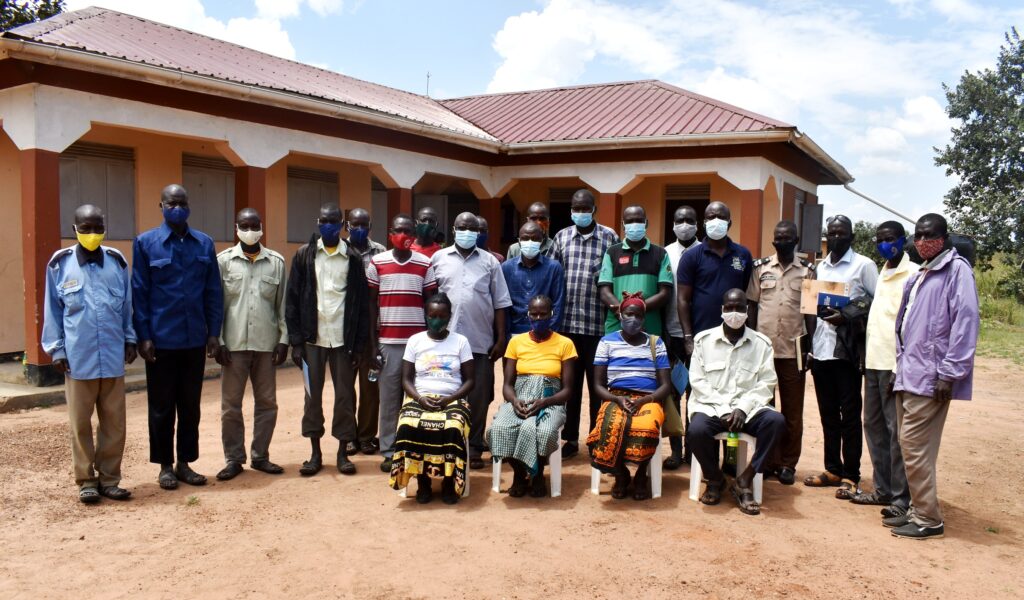
Livestock cafes will be the experimental sites to study forage productivity, establish novel co-learning and knowledge exchange centers and create opportunities for milk and fodder value chains.
During the deliberations, the district officials expressed concern over low animal productivity mainly caused by ticks, requesting the research team to attach the tick control demo on the livestock cafes. The university team agreed to consider including a spray race to demonstrate the benefits of tick control to pastoralists for improved animal health and productivity.
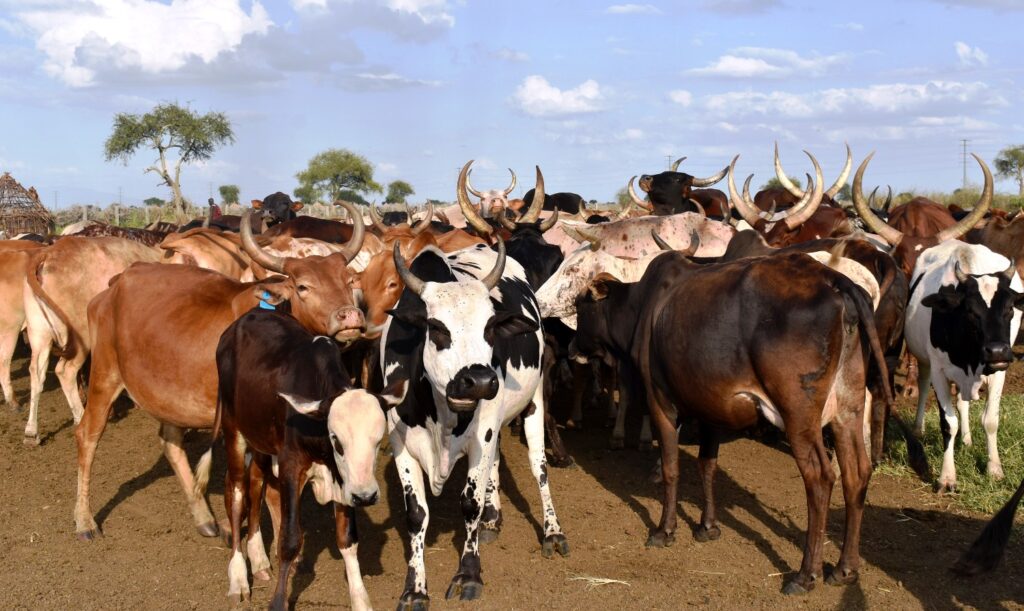
Speaking during the inception workshop at Napak district Farmers Hall, Makerere University Principal Investigator Prof. Denis Mpairwe from the Department of Agricultural Production said the livestock cafes will engage with local communities to test novel land restoration and management options in grazing areas for enhanced forage, food and income.
These experimental plots according to the PI are managed for forage production and can be utilized for controlled grazing by local communities.
“At the livestock cafes, the project will pilot value chain improvement activities towards value addition. Groups of local women, men and youth will be trained and familiarized with livestock products like milk, and their value chains. This will prepare them to take over the operations by the end of the project”, the Principal Investigator said.
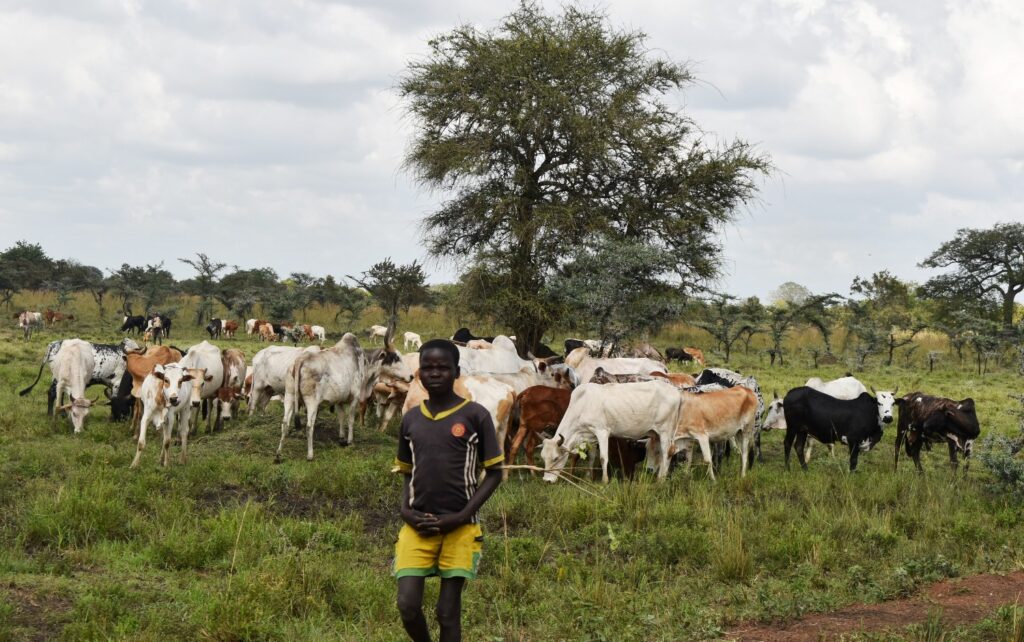
Prof. Mpairwe added that the geographical focus of the Drylands Transform will be the Karamoja cluster, in the cross-boundary area between Kenya, Uganda and South Sudan.
The field studies according to Prof. Mpairwe will take place in four sites providing variation in livelihood strategies, land management and climate. The sites include; Chepareria (Kenya) and Matany (Uganda) in the south dominated by agro-pastoralist communities as well as Lokiriama-Lorengippi (Kenya) and Rupa (Uganda) in the north dominated by pastoralists.

The District Speaker Mr. Angillu J Bosco welcomed the project to Napak, assuring the researchers of security to enable them carry out the activities. Angillu also assured the research team of the availability and readiness of the local people to give land and work with the project.
“We are welcoming you to work and I want to assure you that the team you are seeing here is a very vibrant team, I trust them, they can do the work a PhD or masters person can do but nevertheless they need to work with you, they need your guidance and will be consulting you.
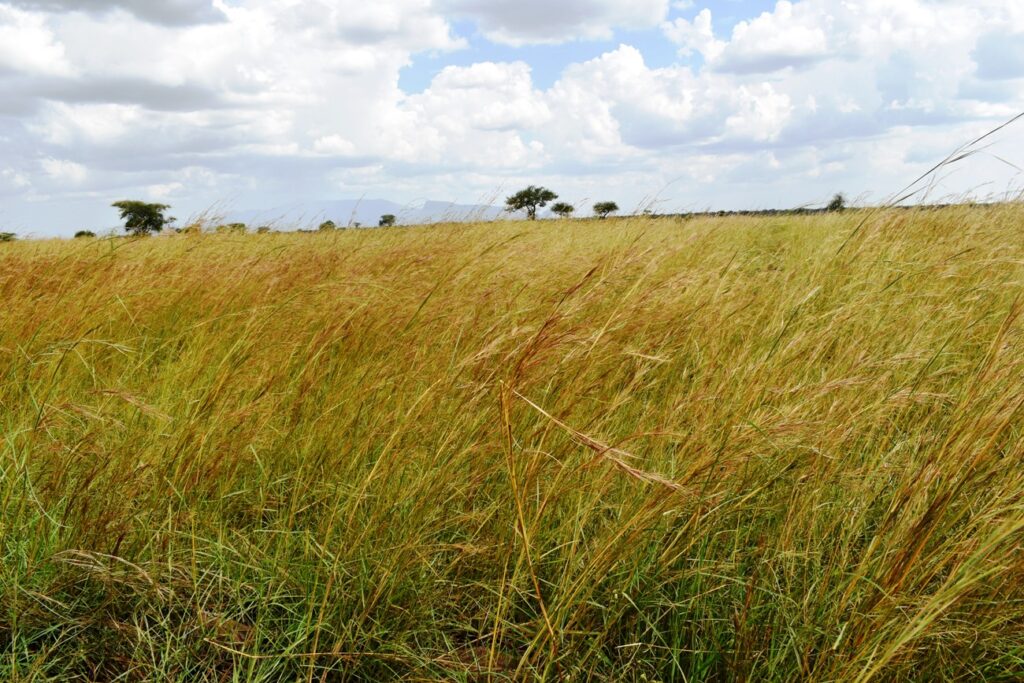
For us in Napak we like giving land and we can give you to use as many acres as you can and one thing I have learnt from this project is that the more land you have the more activities you undertake there. As a district we shall discuss to allocate you the land you need”, Mr. Angillu assured.
He told the communities that the research team had not come to take their land but utilize it for their own benefit and hand it back to them at the conclusion of the project.
The LCV chairperson represented by Mr. Louch Andrew the District Secretary for Works described the Drylands Transform project as a good one for the Karamojong community.
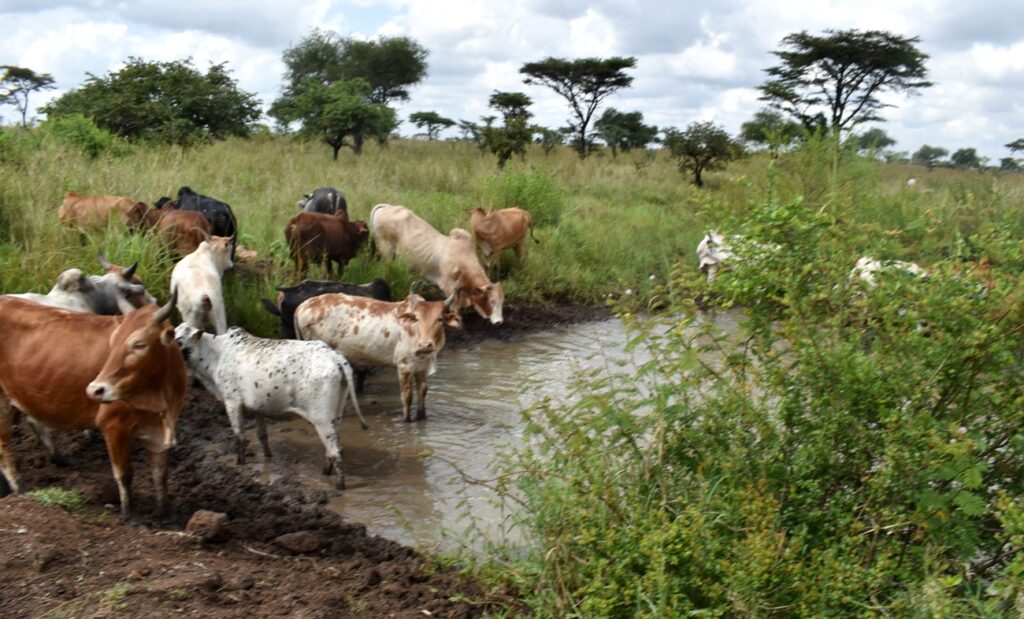
He welcomed the idea of setting up tick control demonstration sites in Matany Sub-County saying, this will boost animal health and livestock production in general.
“This project has come to improve the livelihoods of the Karamojongs on cereal and animal industry. Our animals in Karamoja are suffering from tick-borne diseases which I know that this project is going to handle by introducing a spray race for animals to clean the animals and this has not been our way of living in Karamoja and the animals are not doing very well”, Mr. Louch said.
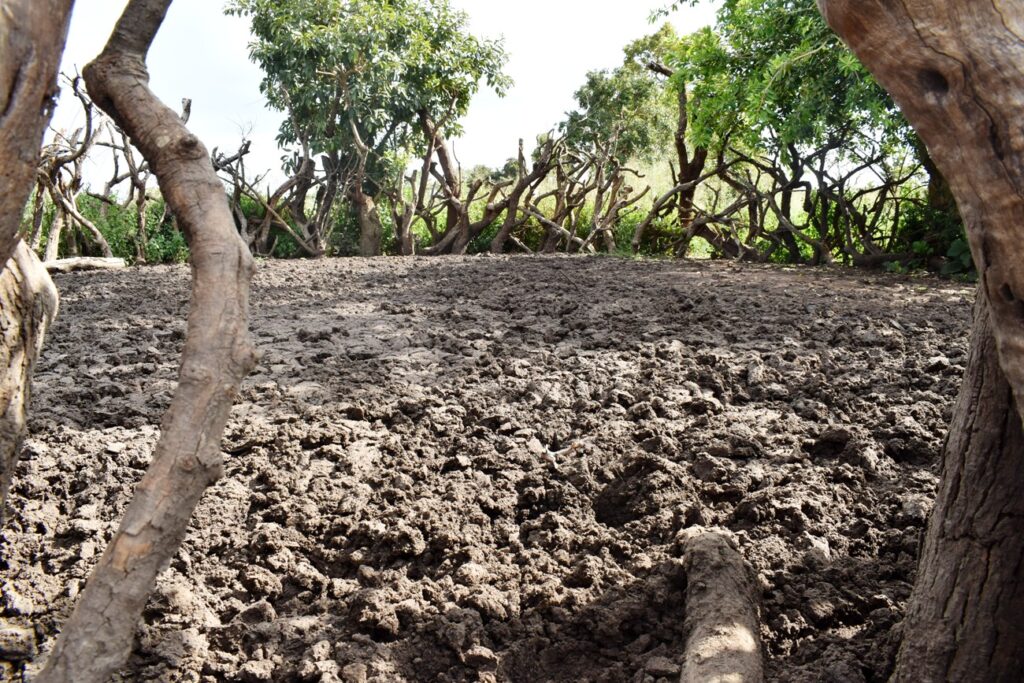
Mr. Luoch also welcomed the idea of establishing the livestock cafes as a brilliant one that will help diversify the incomes and improve on nutrition of the communities.
“Napak produces cereals like sunflower, green gram that have become commercial crops for oil production in Uganda. We ask the project to assist us to add value to these crops and package them for better marketing. We want something commercial not subsistence” added the District Secretary.
He pledged the District’s commitment to support the project activities imploring the research team to involve the local people to do the work so that they get the skills.

Napak District Chief Administrative Officer (CAO) represented by the Principal Assistant Secretary Mr. Koryang Timothy said, it was a blessing that Napak was selected as the project site for the demonstrations.
He said the Dryland Transform project was going to build on what other partners had been doing to transform the livestock sector within the Karamoja cluster.
The CAO observed that implementing a livestock project for agro-pastoralist and pastoralist communities will spillover benefits that will be shared by other communities.
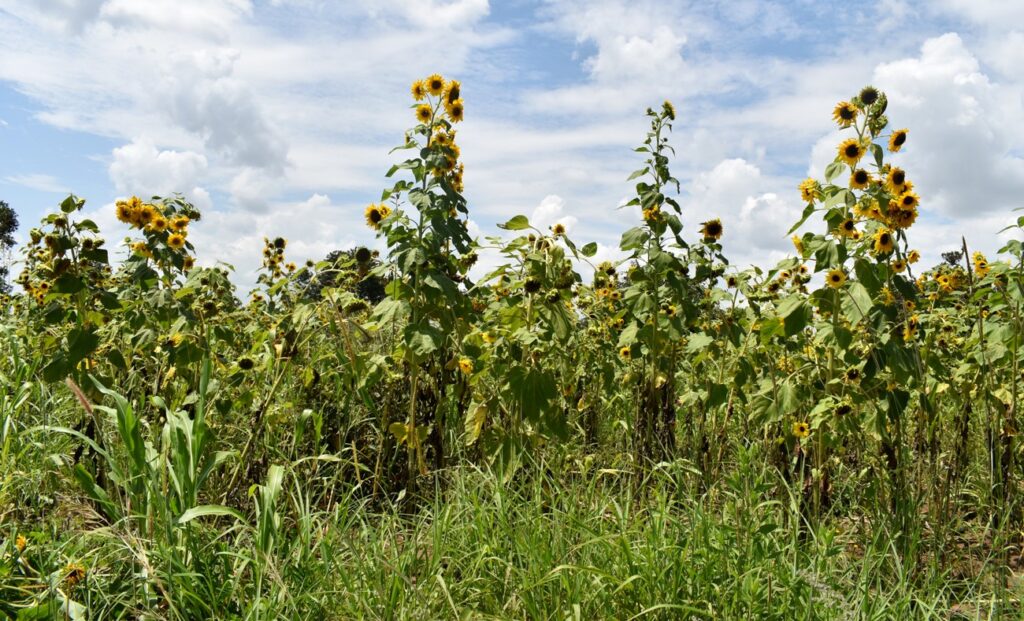
“Animal products are a perfect source of nutrition from ghee, milk and meat. So in totality when you talk about a project on livestock development, you are at the centre of improving the livelihoods of the agro-pastoralist communities. So these are the kinds of projects I would wish our District leadership continue lobbying for because they are a foundation of the livelihoods of our people”, the CAO said.
He thanked the research team for choosing Napak and Moroto districts as well as Matany Sub-County to host the project saying, Matany is the heart of Napak whose benefits will spill over to the entire district.
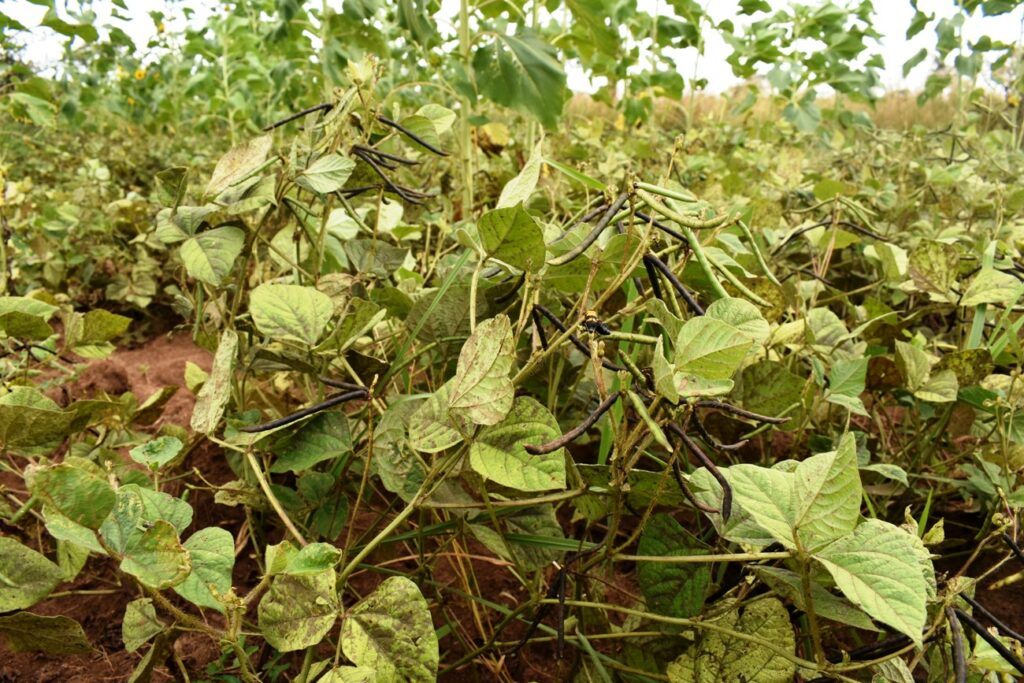
He expressed confidence that the project will progress and go a long way to improve the livestock industry in the District as well as other aspects of productivity such as the crop sector because of the linkage between the agro-pastoralists and pure pastoralists.
He said the project can start while other formalities like signing of agreements and integrating the budget in the district planning and budget awaits on grounds that from all indicators, the project will build on the district performance in the livestock sector.
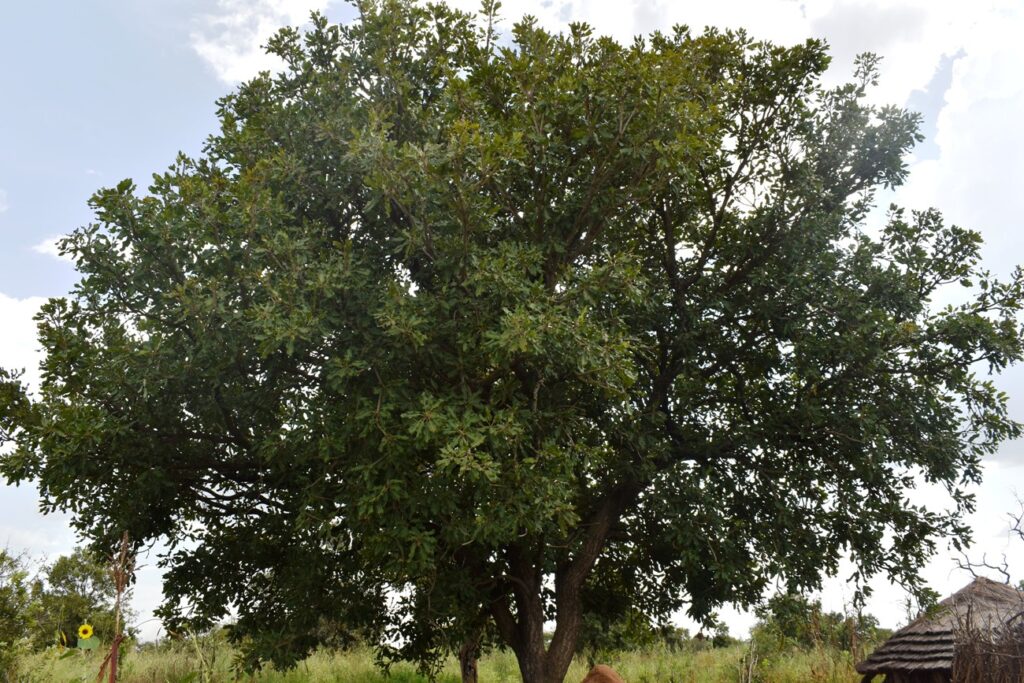
“The project will build on the overall performance of the district in the production section by way of improving the lives of pastoral communities, provision of training for farmers and livestock spraying because Local Governments are assessed annually by the center”, Mr. Koryang noted.
The CAO also said with the support of the Local Government and Matany Sub-County, they will ensure that the project survives its five-year implementation plan and even beyond.
About Drylands Transform Project
The Swedish University of Agricultural Sciences is leading a multidisciplinary team of researchers from Umea University, Gothenburg University, University of Nairobi, Makerere University, World Agroforestry (ICRAF) and the Intergovernmental Authority on Development (IGAD) to implement the; “Achieving the SDGs in East African drylands: Pathways and challenges towards a transformation of landscapes, livestock and livelihoods in the East African drylands (Drylands Transform)” project, in the greater Karamoja cluster of Uganda and Kenya.
The Karamoja cluster of drylands covers Western Pokot, Kenya, Turkana region, the South Western and Eastern part of Ethiopia, the South Eastern part of South Sudan and the whole Karamoja region of Uganda.
It is a five year project funded by the Swedish Research Council for Sustainable Development, Formas, within their call for “Realizing the global Sustainable Development Goals”. It aims to address complex challenges in the East African dylands such as climate change, food insecurity, land and ecosystem degradation and weak institutions.
The project investigates the interlinkages between land health, livestock based livelihoods, human wellbeing and land governance mechanisms in order to contribute to transformative change and sustainable development of the social ecological system in the drylands of East Africa.
The overall goal is to contribute knowledge for the implementation and achievement of the global Sustainable Development Goals (SDGs), while optimizing synergies and minimizing trade-offs between SDGs in the East African drylands by developing transformative pathways through policy and practice.
Jane Anyango is the Principal Communication Officer, College of Agricultural and Environmental Sciences (CAES)
You may like
-


Makerere Launches Scholarly Guide, Calls for Increased Research, Publication and Innovation in Africa
-
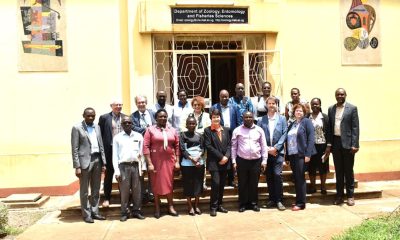

BOKU University Charts New Collaboration Strategies with Mak’s Department of Zoology, Entomology & Fisheries Sciences
-


When Birth Becomes the Most Dangerous Moment, Wanduru & the Work of Making Labour Safer
-
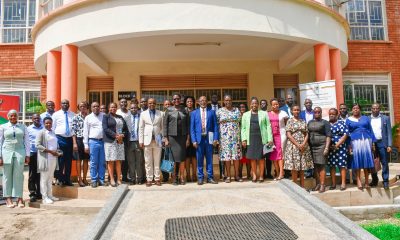

VC Opens Training for MoKCC Officials on Safeguards in Procurement
-


Study Alert: Power in Her Hands; Why Self-Injectable Contraception May Be a Game Changer for Women’s Agency in Uganda
-
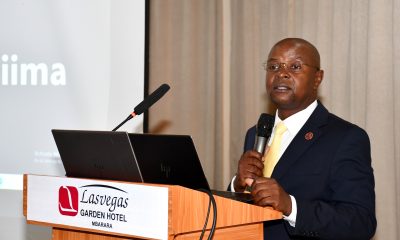

Building Skills for Better Public Investments: PIM Centre Trains Public Sector Economists
Agriculture & Environment
From Adversity to Excellence: The Inspiring Journey of Makerere’s Best Science Student, Esther Ziribaggwa
Published
1 week agoon
February 6, 2026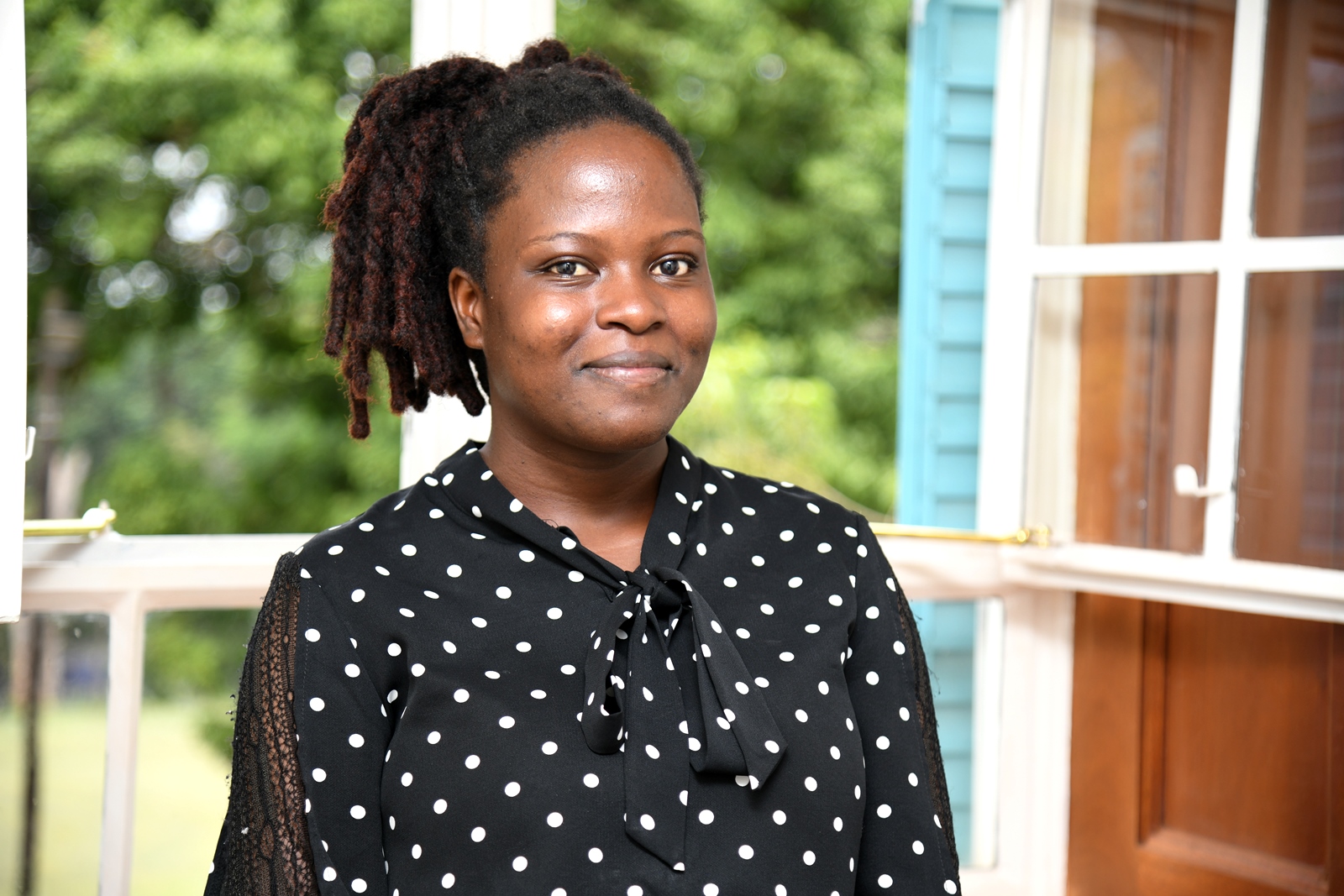
Growing up in Nkonge Village, Kyampisi Sub County in Mukono District, Esther Ziribaggwa learned early the meaning of resilience.
Born to Mr. Musisi Godfrey, a farmer, and Ms. Babirye Resty, a market vendor in Seeta, Mukono District, her journey from humble beginnings to becoming Makerere University’s top-performing student in the Sciences is a testament to her determination, hard work, and unwavering faith. She attained a CGPA of 4.77 in the Bachelor of Agricultural and Rural Innovation, a programme taught at the College of Agricultural and Environmental Sciences (CAES). She will be graduating from Makerere University on 24th February 2026, the first day of the 76th graduation ceremony.
Educational Journey and Navigating the Financial Hurdles to remain in School
Ziribaggwa’s journey to academic excellence has not been smooth. But her parents’ sacrifices laid the foundation for her dreams, even as life presented relentless challenges.
She began her education at Frobel Day and Boarding Primary School and later joined Seeta Boarding Primary School, where she excelled with 9 aggregates in her Primary Leaving Examinations. However, the transition to secondary school presented challenges that tested her resolve.
She joined Mpoma Royal College in Mukono District alongside her sister, who had scored 12 aggregates. Shortly after starting Senior One, their father fell seriously ill, requiring an intestinal surgery, and could not continue to work. With the family unable to pay school fees, both sisters dropped out for a year. It was only through the compassion of the school bursar and the then Head Teacher, Ms. Namazzi Connie, who reduced their fees from 800,000 to 380,000 Uganda Shillings, that Ziribaggwa and her sister were able to return. “The year out of school was a huge setback,” she recalls, “but I focused on catching up. I knew I couldn’t waste this second chance.” Her perseverance paid off. Despite the lost year, she completed her O’ Level with 25 aggregates in eight subjects.
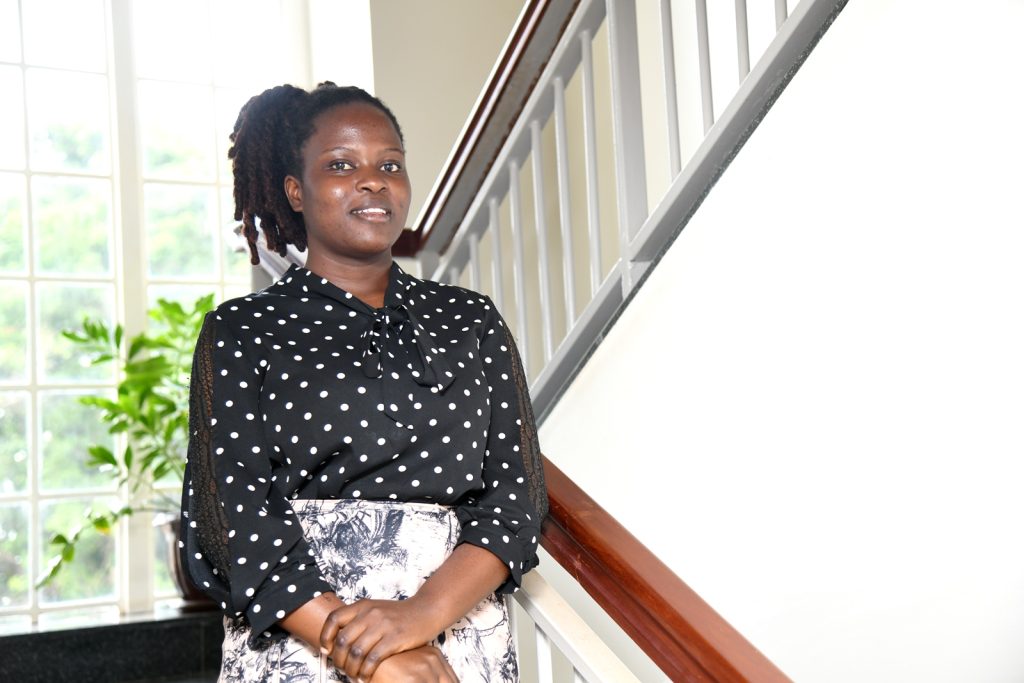
Her A’ Level years were marked by similar challenges. Due to financial constraints, Ziribaggwa attended three different schools. She initially enrolled at Seat of Wisdom Boarding School in Kayunga but was forced to leave when her family could no longer afford the fees. At the time, her father, the family’s sole breadwinner, had undergone a second operation and was unable to work. Her mother, a market vendor, stepped in to support her education and transferred her to Paul Mukasa Day and Boarding Secondary School in Mukono District as a day student. However, the long daily commute was exhausting, leading to a final transfer to Godmark High School in Mukono District where she completed her A’ Level in 2019 with 15 points in Geography, Economics, Agriculture, and Subsidiary Mathematics.
After completing secondary school, Ziribaggwa waited two years before joining university due to financial constraints. Although she had been admitted under the private sponsorship scheme to pursue a Bachelor of Statistics, she was unable to raise the required tuition. Following the outbreak of COVID-19 and the subsequent lockdown, an opportunity arose for her to obtain government sponsorship. At the time, there were no Senior Six leavers, prompting Makerere University to invite applications from candidates who had completed Senior Six within a specified period. The cut-off points across programmes were lowered, enabling her to secure government sponsorship to pursue a Bachelor of Agricultural and Rural Innovation.
Appreciation
She is deeply grateful to the Almighty, her parents, and everyone who supported her educational journey. She is specifically thankful to the Government of Uganda for sponsoring her university education, and to Ms. Namazzi Connie, her O-Level Head Teacher, for subsidizing her school fees. She is also grateful to all her lecturers at CAES and Jesus is King Ministry under the Makerere University Christian Union.
Message of Resilience to Fellow Students
To the students navigating similar challenges, Ziribaggwa shares a message of encouragement. “Never let your situation break you. There’s always going to be challenges, sometimes pushing you to what feels like a point of no return. But those moments should not define your future – they are a test of your resilience. Strive to outgrow them and become a better person, even when the journey feels impossible.”
Career and Aspirations
Ziribaggwa currently works in the extension division of Slow Food Uganda, an agricultural organization based in Mukono District, where her work focuses on women and youth. Although her dream was to become a medical doctor, her love for agriculture has grown over time and does not regret taking on this path. She aspires to become a Senior Agricultural Officer in the country, with the goal of improving farming conditions, particularly in the rural communities. Growing up in a farming community exposed her to many challenges faced by farmers, including unpredictable weather conditions that necessitate irrigation support, and improper use of agrochemical inputs, which pose risks to both soil quality and human health.
Ziribaggwa hopes to pursue further studies in crop and soil science. She draws inspiration from exemplary leaders like Hon. Rebecca Kadaga, former Speaker of the Parliament of Uganda, and First Deputy Prime Minister and Minister for East African Community Affairs. “I have always admired her for being hardworking, resilient, and eloquent,” she says, seeking to emulate these qualities in her own journey.
Agriculture & Environment
Call for Applications: QCF Postdoctoral Research Fellowships
Published
4 weeks agoon
January 20, 2026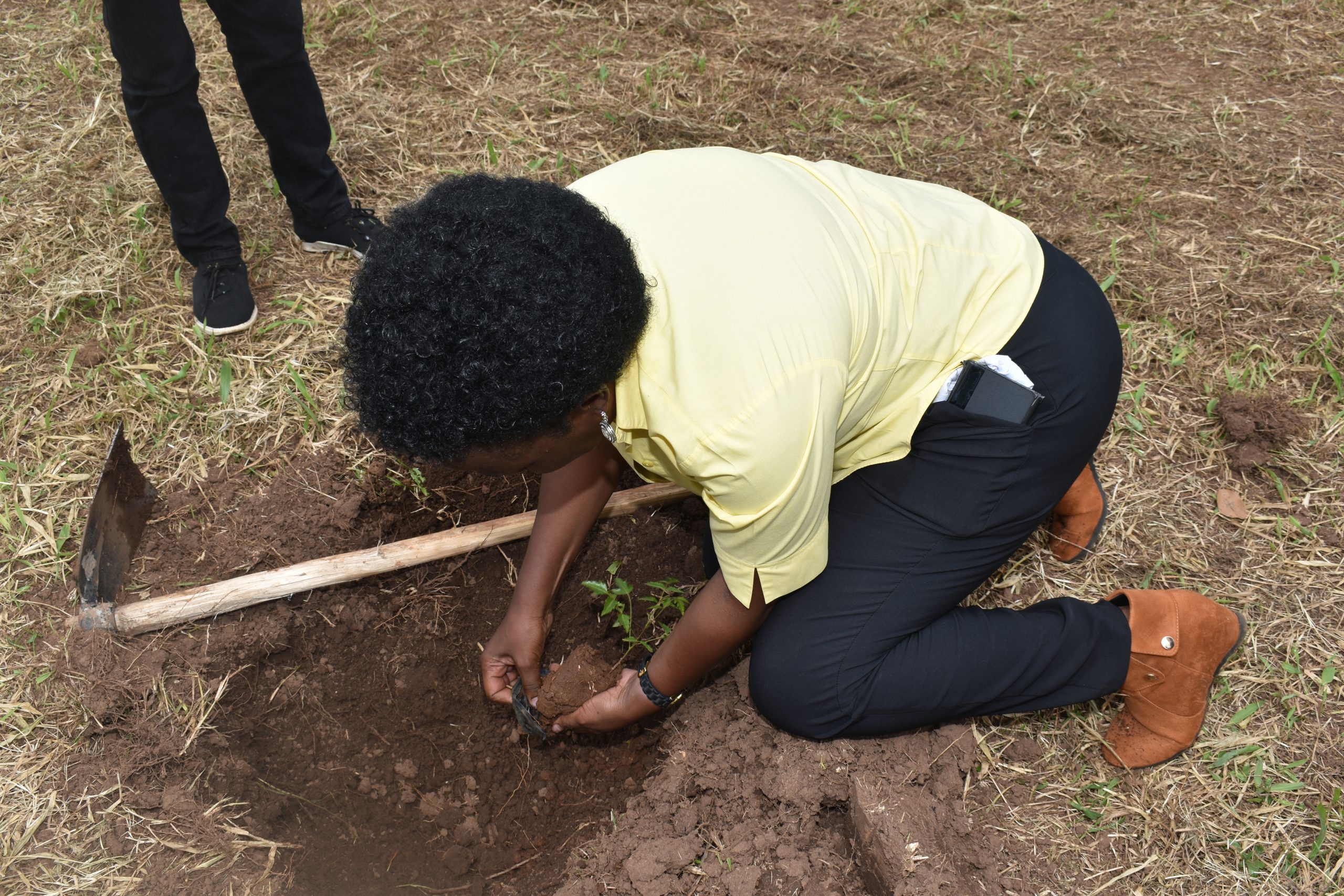
Makerere University’s Department of Geography, Geo-informatics and Climatic Sciences in partnership with Quadrature Climate Foundation and Red Cross Red Crescent Climate Centre are seeking two fellows for Quadrature Climate Foundation (QCF) Fellowship Programme. This is a two-year post-doctoral programme fully funded by QCF, which is an independent charitable foundation working for a greener and fairer future. Applications for the two-year post-doctoral fellowship are invited from individuals with demonstrated interest and expertise in locally led adaptation to climate change research. This initiative is a unique and excellent opportunity to expand the network of interested individuals with researchers and decision-makers, as well as deliver action-oriented research to inform policy and practice. Depending on their interest, each applicant should choose one of the two thematic areas offered under the fellowship program:
- Knowledge co-creation for locally led adaptation to climate change
- Decentralised decision making for effective climate change adaptation and resilience
The Fellow working on the Thematic Area 1: knowledge co-creation for locally adaptation will explore collaborative learning processes (including informal learning) for climate change adaptation among smallholder farmers with focus on Uganda, with linkages to related work in Bangladesh, Mozambique and Nepal. The overall intention is to generate understanding of how decision making processes, across scales, can be linked to local and context specific knowledge systems and process for epistemic just adaptation. The key research questions are:
- What does the process of co-creating knowledge for locally led climate change adaptation look like in a rural smallholder farming setting of a Least Developed Country (LDC)?
- What are the possibilities, promises and pitfalls of knowledge co-creation for locally led adaptation planning?
The research will intentionally contribute to methodological and practice advances in co-creation of knowledge for locally led climate change adaptation.
The research on Thematic Area 2: decentralised decision making for effective adaptation and resilience will undertake scientific interrogation of a climate finance mechanism that has been designed for locally led adaptation and resilience in Uganda. The Fellow will largely focus on testing selected assumptions behind the design of the mechanism. The key questions are:
- How does effective locally led climate change adaptation and resilience building investment decision making look like in practice?
- What works and how does it work? What does not work and why?
Key considerations in the research will include local leadership, inclusion, context specificity, cross-scale, and capability strengthening. The targeted contributions of the fellowship include improved knowledge management for climate resilience planning and decision-making, strengthened evidence-based research-policy-practice dialogues, framework(s) for integrating local and experiential knowledges in resilience building investment decision making processes, among others.
The Fellows will be based, full-time, at Makerere University, Kampala as a core member of the team working on locally led adaptation and resilience. Their work will be conducted under the auspices of the Least Developed Countries Universities Consortium on Climate Change (LUCCC) through which Makerere University is engaged in research and knowledge management collaborations. The Fellowships will focus on Uganda, but with deliberate linkages across LDCs, which might necessitate travels for in-person working meetings.
Roles and responsibilities of the Postdoctoral Research Fellow
The Fellow will be highly motivated to work with a transdisciplinary research team, grow their research expertise, engage with climate change researchers, decision-makers, practitioners and generate different categories of publications. Makerere University will appoint a locally based mentor to the Fellow to provide professional development support. Where needed, the Fellow will participate in teaching and community outreach activities including knowledge sharing in ways that foster collaborative research for adaptation policy and practice.
Requirements:
- A PhD, awarded within the previous three years, in a related discipline (e.g., geography, climate and society, sustainability, adaptation governance, epistemic justice, climate finance).
- Knowledge and experience of locally led adaptation in the agriculture sector.
- Experience in synthesizing and managing datasets and literature.
- Experience in, and knowledgeable of, participatory and collaborative action-oriented research methodologies and tools.
- Demonstrated ability to produce research information products for different audiences.
- Excellent written and verbal communication skills in English
- Demonstrated interest and experience in transdisciplinary collaborations across-scales including with local communities, decision-makers and practitioners in LDCs
- Experience in giving international oral presentations and interest in public communication for wide-ranging categories of audiences
- Data and information visualisation skills will be an added advantage
Application requirements:
Applicants should submit a single PDF with: (i) an application letter not longer than 2 pages that includes indication of theme of interest, a description of research interests, research expertise, and an explanation of how they can work as part of the transdisciplinary research team in line with the fellowship objectives described above; (ii) a CV including a publication list; (iii) copies of academic transcripts and/or certificates; (iv) an example of written work; (v) email addresses of two references who have been directly involved in their PhD research.
Applicants must submit the PDF application document to colocal.caes@mak.ac.ug. Please type “LUCCC PDR Application: COLOCAL-Makerere” as the subject line of the email.
Closing date
Midnight (GMT+3) on 27th February, 2026 or until the position is filled.
Selection process
Eligible and complete applications will be considered followed by communication with short-listed applicants. Makerere University, in consultation with Quadrature Climate Foundation and the Red Cross Red Crescent Climate Centre, will conduct interviews of the short-listed applicants.
If you have not heard from Makerere University within two months of the deadline, please assume your application has been unsuccessful.
Contact details for enquiries about this post-doc fellowship: colocal.caes@mak.ac.ug
Makerere University reserves the right to
- Disqualify ineligible, incomplete and/or inappropriate applications;
- Change the conditions of the award or to make no awards at all
-The QCF Fellowship Programme is a two-year, post-doctoral programme fully funded by Quadrature Climate Foundation (QCF).
-Quadrature Climate Foundation is an independent charitable foundation working for a greener and fairer future. For more information on QCF, please visit qc.foundation.
Agriculture & Environment
Mak-CAES Trains Small-Scale Processors on Soybean Value Addition & Product Development
Published
2 months agoon
December 16, 2025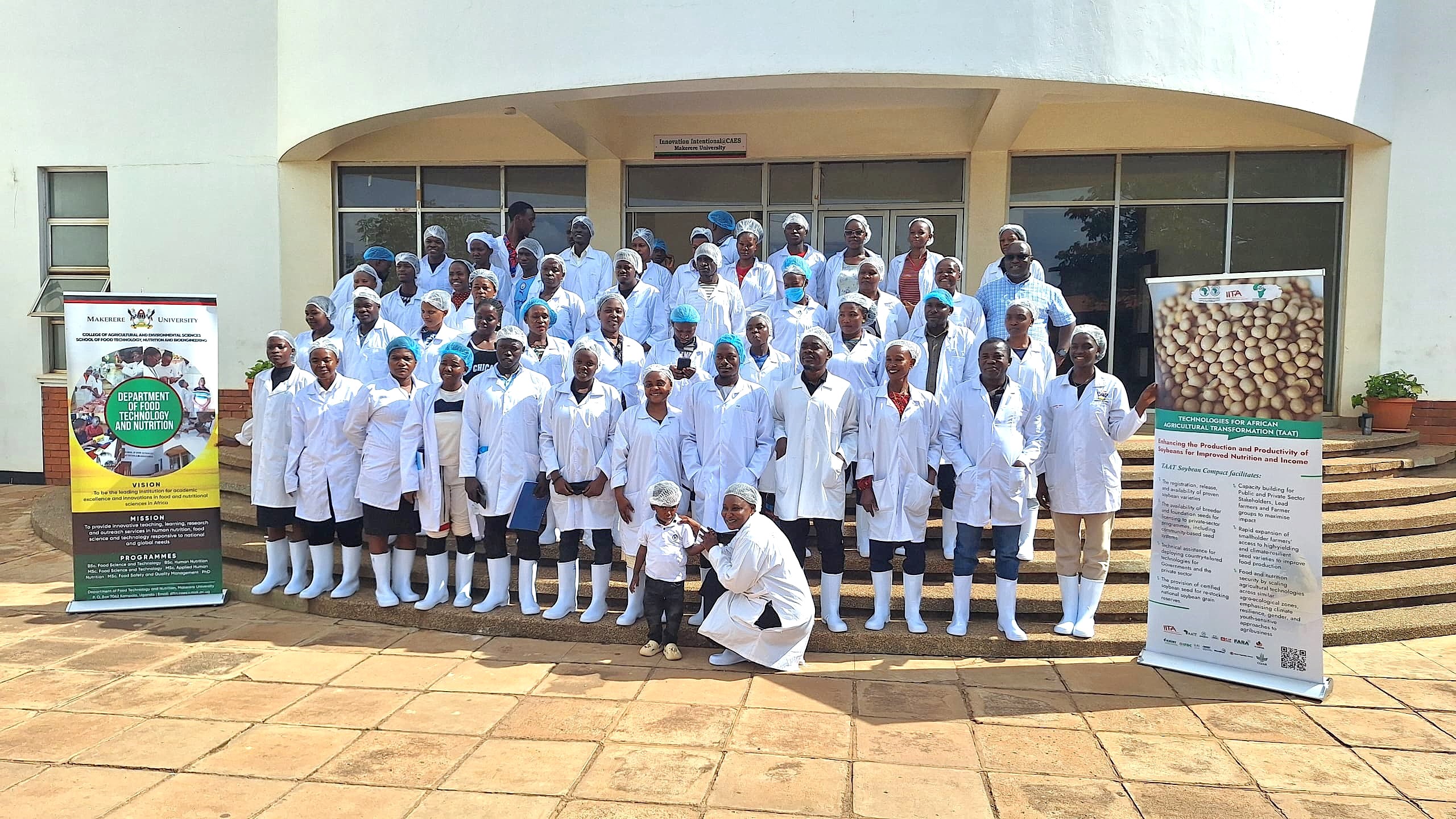
The Department of Food Technology and Nutrition (DFTN), Makerere University, in collaboration with Smart Foods Uganda Ltd, successfully conducted a five-day intensive training on soybean value addition and product development from 24th to 28th November 2025. The training was implemented with support from IITA Uganda under the Training for African Agricultural Transformation (TAAT) Soy Compact Project, aimed at strengthening agro-processing capacities and promoting soybean utilization for improved nutrition and livelihoods.
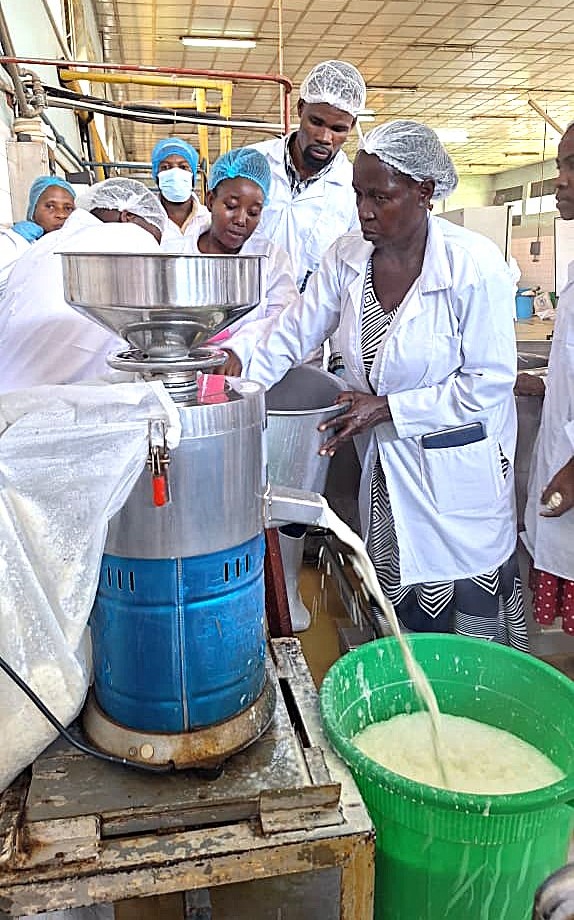
The training program was highly practical and skills-oriented, featuring extensive hands-on sessions designed to equip participants with applicable processing and product development competencies. Most of the practical activities were hosted at Makerere University’s Food Technology and Business Incubation Centre (FTBIC). Participants also benefited from an industry exposure and experiential learning session at Smart Foods Uganda Ltd in Bweyogerere, where they gained first-hand insights into commercial-scale soybean processing operations, quality control systems, and product marketing strategies.

Key thematic areas and technologies covered during the training included soybean nutrition and associated health benefits; assessment of quality attributes of soybeans and soy-based products; application of Good Hygiene Practices (GHP) and Good Manufacturing Practices (GMP); and processing of high-quality soy products. Practical sessions focused on the production of soymilk, tofu, soy yoghurt, soy flour, and soy coffee, as well as the formulation of soy-fortified composite porridge flours. Participants were also trained in the development of various soy-based bakery products, including bread, mandazi, daddies, and baghia. In addition, sessions on marketing, branding and positioning of soy products, as well as UNBS certification requirements and documentation, were conducted to enhance market readiness and regulatory compliance.
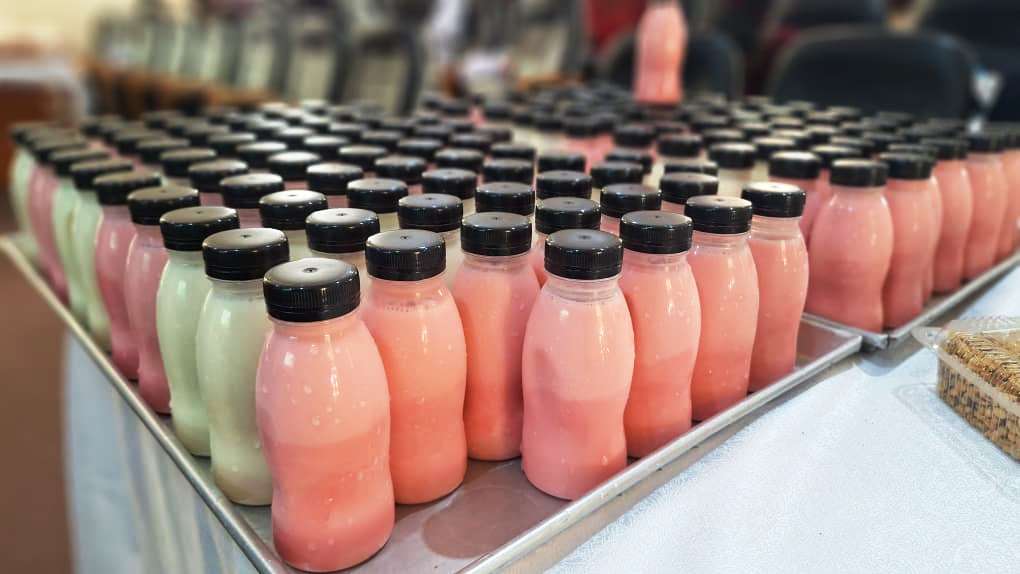
The training attracted a total of 57 participants, comprising small-scale soybean processors and graduating university students, thereby fostering knowledge exchange between academia and industry. Overall, the training contributed significantly to building technical capacity in soybean value addition, promoting entrepreneurship, and supporting the development of nutritious, market-oriented soy-based products in Uganda. The School of Food Technology, Nutrition, and Bioengineering, under the leadership of Dr. Julia Kigozi (Dean), conducts periodical trainings for agro-processors across the country to enhance technical capacity, improve product quality, and promote the adoption of modern, safe, and sustainable food processing practices. These trainings are designed to equip agro-processors with practical skills in food safety, quality assurance, value addition, post-harvest handling, nutrition, and bioengineering innovations, thereby enabling them to meet national and international standards. Through this outreach, the School contributes to strengthening agro-industrial development, reducing post-harvest losses, supporting entrepreneurship, and improving food and nutrition security while fostering stronger linkages between academia, industry, and communities.
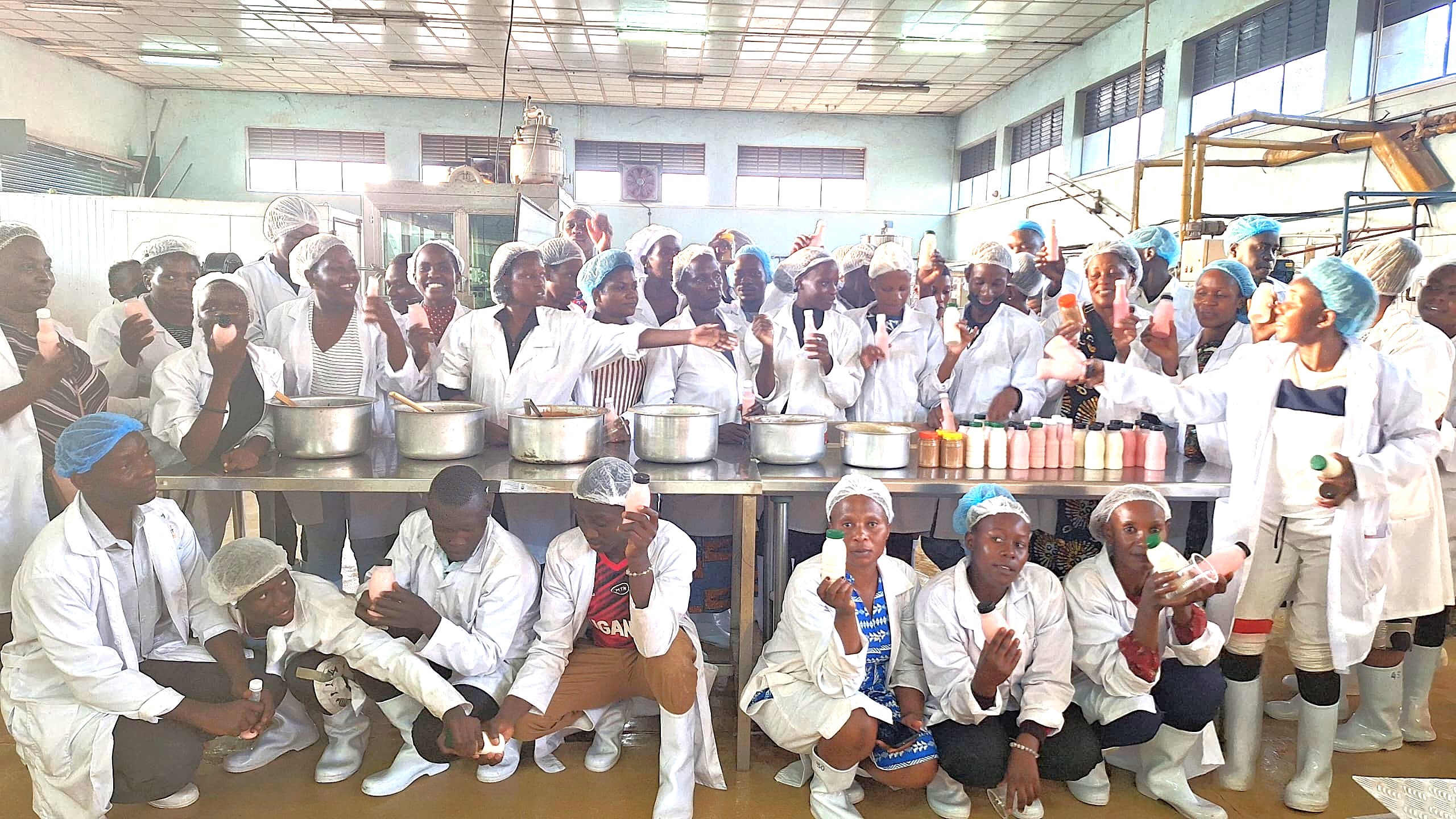
Trending
-

 General2 weeks ago
General2 weeks agoCall for Applications: Admission to Postgraduate Programmes 2026/2027
-

 Natural Sciences2 weeks ago
Natural Sciences2 weeks agoSimon Mungudit: Mak’s Best Performing Male Science Student & Rising Star in Petroleum Geoscience
-

 Agriculture & Environment1 week ago
Agriculture & Environment1 week agoFrom Adversity to Excellence: The Inspiring Journey of Makerere’s Best Science Student, Esther Ziribaggwa
-

 Health2 weeks ago
Health2 weeks agoCall For Applications: MakNCD Masters and PhD Training Opportunities
-

 Health2 weeks ago
Health2 weeks agoEU Earmarks Shs19.8bn for 15 Joint PhD Scholarships in Health, Environment Research
